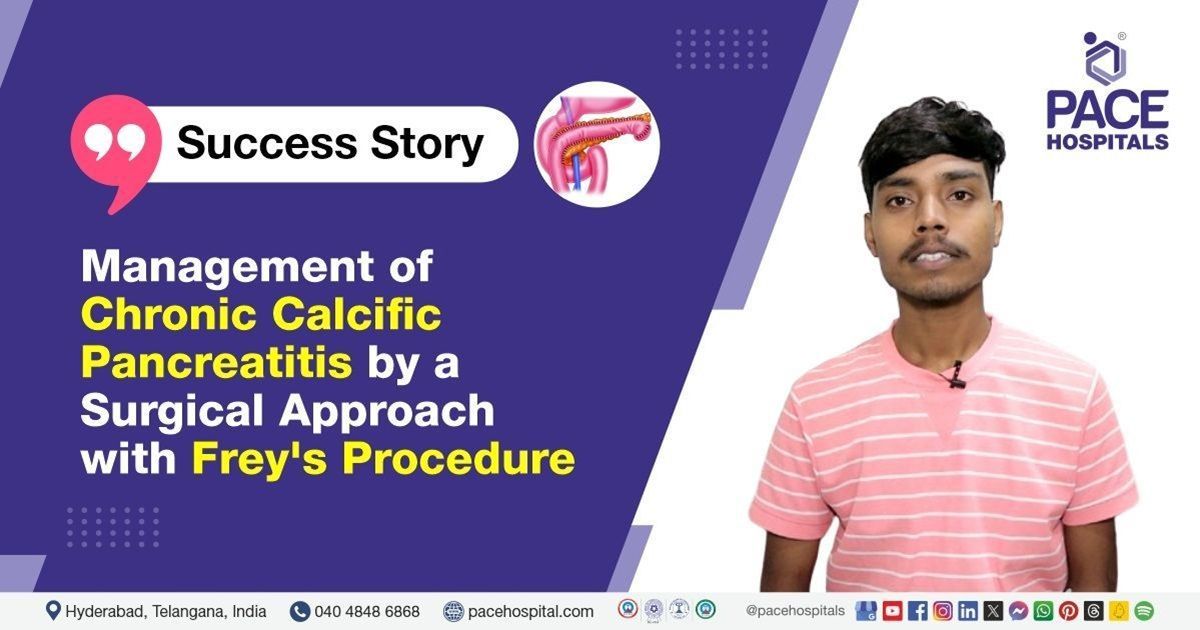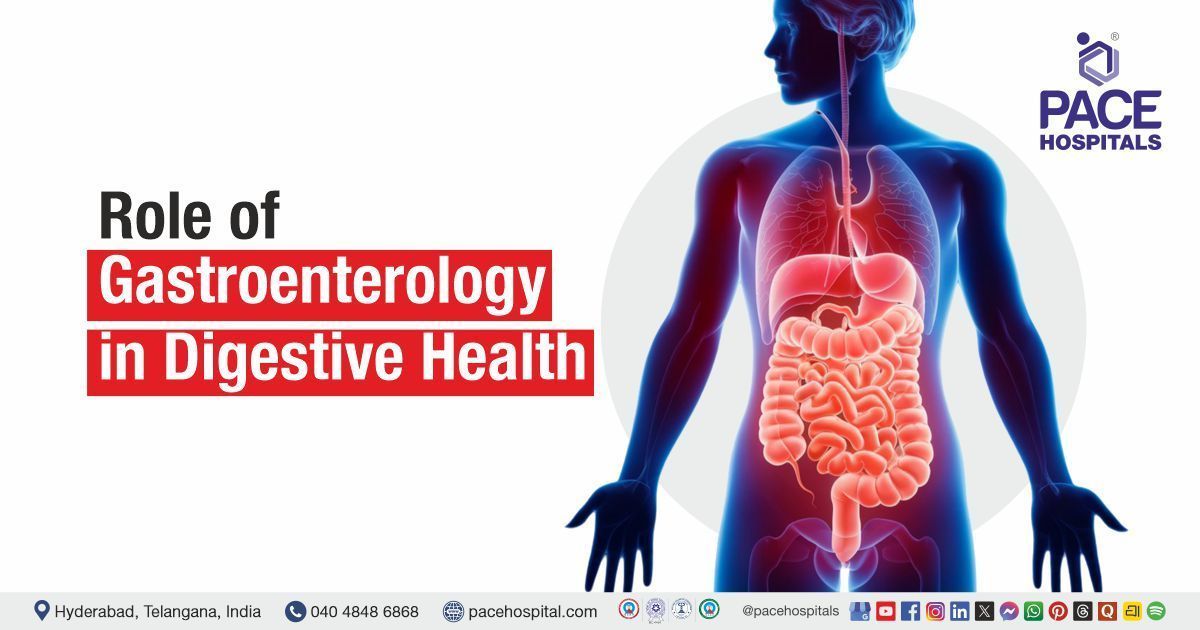Management of Chronic Calcific Pancreatitis by a Surgical Approach with Frey's Procedure
PACE Hospitals
An adult male patient approached PACE Hospitals, Hyderabad, with complaints of recurrent episodes of pain in the epigastrium for the past ten years, requiring by intravenous route. Upon further investigations, he was diagnosed with chronic calcific pancreatitis and underwent a FREY’S Procedure.
Medical History
A 19-year-old male patient approached the
gastroenterology department of PACE Hospitals, Hyderabad, with chief complaints of recurrent episodes of pain in the epigastrium for the last ten years requiring painkillers by intravenous route to get symptomatic relief. The patient was not seen complaining of steatorrhea,
jaundice, joint pains or swelling over the neck.
Diagnosis
As a part of further investigation, he underwent contrast-enhanced computed tomography (CECT), MRI with Magnetic resonance cholangiopancreatography (MRCP), and a Lipid profile test other than routine investigations. Considering the reports of the diagnostic tests, the patient was diagnosed with chronic calcific pancreatitis and was admitted to PACE Hospitals, Hyderabad, for further management and therapy of his medical condition.
The pancreas is a vital digestive organ that plays a dual role in both the endocrine and exocrine systems. It facilitates the hydrolysis of macromolecules like proteins, carbohydrates, and fats.
Chronic pancreatitis is a progressive inflammatory disease that impacts both functions (i.e endocrine and exocrine functions), causing symptoms like pancreatic insufficiency, steatorrhea, and weight loss.
Treatment
After careful observation of the patient’s clinical symptoms and medical condition, the interventional gastroenterologist, transplant hepatologist, pancreatologist and endosonologist, Dr. Govind Verma, has ascertained that FREY’S Procedure would help the patient in managing chronic pancreatitis.
Frey's procedure is a surgical technique used to treat chronic pancreatitis by removing diseased pancreatic head parts while leaving the common bile duct and duodenum intact, aiming to decompress the pancreatic ductal system and improve pancreatic head drainage.
Before performing the FREY’S Procedure, the endocrinologist’s opinion was taken as the patient’s parathyroid hormonal levels (PTH) were at 98.3 pg/ml and he was also seen suffering from secondary hyperparathyroidism due to vitamin D deficiency.
Procedure
After a proper workup and preanesthetic checkup (PAC), the patient underwent the FREY’S Procedure. During the procedure, the pancreas was firm and atrophic, with its duct dilated to 1 cm. The neck of the pancreas was found with a stone of around 2 cm. Coring of the pancreatic head was done, and the pancreatic duct was laid open. Roux-en-Y lateral pancreaticojejunostomy was done with 2-0 Prolene with continuous interlocking method.
Post-procedure
Upon successfully completing the FREY’S Procedure, the patient was shifted to general observation room and a liquid diet was started on postoperative day 1. Ultrasound sonography screening was done on day five and no intraabdominal collections were displayed. Hence, the drain was removed on day six post-surgery. During his stay in the hospital, he was treated with Intravenous antibiotics, proton pump inhibitors (PPIs), fluids over the intravenous route, and other supportive medication and care. The postoperative period was successful without any complications.
Discharge notes
While discharging the patient, he was prescribed proton pump inhibitors, opioid analgesics, laxatives, non-steroidal anti-inflammatory drugs and vitamin D supplements. Though he was asked to get a review done after a week in the OPD by Dr. Govind Verma, he was also instructed to rush to the emergency department of PACE Hospitals, Hyderabad, in case of severe symptoms like episodes of fever, abdominal pain or vomiting. The patient was discharged in a hemodynamically stable condition and by providing him enough information about drug usage and disease management.
Guidelines for the understanding and management of recurrent abdominal pain in chronic pancreatitis
Chronic pancreatitis is a severe condition causing recurrent abdominal pain due to inflammation, local complications, or neurogenic mechanisms, which can significantly impact patients' quality of life. Pain assessment follows similar guidelines to other chronic pain types.
Pain relief involves using analgesic drugs, abstinence from alcohol and smoking, pancreatic enzyme therapy, antioxidants, endoscopic treatment, behavioral interventions, surgery, and neurolytical interventions. The best candidates are those with distal obstruction of the main pancreatic duct and in early stages of the disease. Behavioral interventions should be part of a multidisciplinary approach to chronic pain management. Long-term effects are variable, but high success rates have been reported in open studies.
Share on
Request an appointment
Fill in the appointment form or call us instantly to book a confirmed appointment with our super specialist at 04048486868











